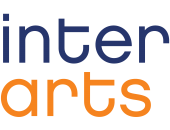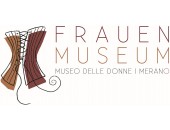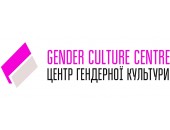Program
TUE 31/08 Welcome & Opening
5.15 pm / CET Birth culture. giving birth and being born
Guided tour through the current exhibition of the Frauenmuseum Hittisau / Women’s Museum Hittisau
7.00 pm / CET Official Opening
Women’s Museum Hittisau, IAWM and politicians with artists’ acts by Guadalupe Aldrete, Natalie Fend & Magdalena Türtscher, Eva-Maria Kraft, Barbara Husar and Ronja Svaneborg
9.00 pm / CET Reception
WED 01/09 Day of birth culture
9.45 am / CET Welcome
-
Introduction & Birth cultures project by Stefania Pitscheider Soraperra, AUT
-
Keynote by Frances McConville, Midwifery Advisor to the WHO
Frances McConville is currently the Midwifery Adviser to the World Health Organization, based in Geneva, providing technical and policy support to the 194 Member States. She is qualified as a midwife and a nurse, has a BSc in Zoology and an MSc in Health Economics. After being a VSO midwife in Bangladesh in the mid-1980’s, she spent much of her career in sexual, reproductive, maternal and newborn health and gender in South East Asia, Africa and the Middle East, working with a range of NGO’s and UN agencies and as a Health Adviser to the UK department of international development (DFID). Fran McConville is passionate about the rights of women, newborns and their families to have access to quality midwifery care everywhere, and ensuring that the care provided is based not only on existing evidence but on knowledge that challenges assumptions and arises from asking different questions.
10.00 am / CET Bits & Bytes - Part 1
-
The Limbic Imprint by Birgit Kalb, AUT
Our perception oft the world during our early phase of development influences how we perceive and interact with the world today. This basic function of our nervous system to archive our interpretations of reality, is called "limbic imprinting". If we want to live a self-dependent, self-determined, vital life in loving relationships it is worth to know something about our own limbic imprint.
Birgit Kalb is a qualified nurse and worked as such for several years at the LKH Bregenz and the University Hospital Basel. She completed training as a craniosacral therapist in Winterthur and as a trauma therapist in Munich and opened her own practice in Wolfurt (A) in 2008. She completed numerous advanced trainings in systemic constellation work, embryology, pre- and perinatal attachment therapy, among others. Birgit Kalb specializes in early trauma and attachment injuries, especially in (expectant) parents and babies. She is a founding member of IG Geburtskultur a-z.
-
Birth & Space – Reflection on Birth Culture and Architecture by Anka Dür, AUT
In her lecture "Birth & Space", Anka Dür refers to the seven levels of birth and makes the interactions between space and birth comprehensible. She explains which elements a good spatial environment needs, which can have a positive influence on the physiological process of birth.
Anka Dür is a trained architect and recently successfully completed her midwifery studies at the ZHAW Winterthur. Both in her architecture studies, which she completed with the design of a contemporary birth center, and in her midwifery training, she intensively studied the connections between space and birth. Anka Dür is a founding member of IG Geburtskultur a-z and, as one of 3 curators, was instrumental in designing the current exhibition "birth culture. of giving birth an being born” at the Frauenmuseum Hittisau. In addition, she was part of the design team of the "Room for Birth and Senses", exclusively designed for the exhibition, the prototype for the novel interpretation of birth spaces.
-
Birth as a Ceremony in Diné communities by Nicolle L. Gonzales, USA
Nicolle L. Gonzales is a "Dine' Nurse-Midwife" from the Navajo Nation, the second largest of the indigenous native peoples in the United States, and she is Founder and Midwifery Director of the Changing Women Initiative, in Santa Fe, New Mexico, a women-led health collective with a mission to renew cultural birth knowledge and to strengthen and reclaim indigenous sovereignty in women's medicine.
Gonzales received her bachelor's degree in nursing and her master's degree in midwifery from the University of New Mexico. She is a member of the American College of Nurse Midwives and has over 12 years’ experience as a nurse and has worked as a Nurse-Midwife doing full-scope midwifery for the last 10 years.
During her studies, it became apparent to her that traditional Native American healing practices and philosophies did not play a role in the context of women's health and childbirth. She began to integrate these approaches into her work. This led to the founding of the Changing Woman Initiative (CWI). Gonzales is also an author and sought-after speaker, writing and speaking on women's health, reproductive justice, and traditional indigenous birthing practices.
-
Birth rituals and practices among different ethnic groups told through exhibition at the Vietnamese Women’s Museum by Le Cam Nhung, VWM
The presentation mentions the role of the gods in the baby circle life through different rituals as: Rituals for the request for a child of the Cao Lan and the San diu groups; Ede naming ritual organized three days after birth; The cult of the celestial mothers, Cung Mu among the Viêt… The presentation also tells stories of unique traditional knowledge for example: Using amulets to protect pregnant women and baby, buring coal after the birth to keep warm three times a day; young fruit such as papaya or banana flower is included in the daily diet to foster lactation… In addition, the presentation shows the role and contribution of the Vietnam Women's Museum in preserving and promoting birth cultural values in temporary life.
Le Cam Nhung CV > PDF Download
11.40 am / CET Bits & Bytes - Part 2
-
SHHH! Stories of abortion and sexuality, Women's Museum Norway by Thea Aarbakke and Mona Holm, NOR
Abortion is a universal female experience. It has always existed, despite taboos and stigmatization. The right for women to control their own fertility, including the right to safe abortions, has been a core issue for the women’s movement globally. The cause inspires strong emotions, and abortion laws are often under debate. Abortion is still illegal in many countries.
In May 2020, the project invited our colleagues in IAWM to participate, by collecting stories of abortion from their countries. Twelve museums managed to collect stories, many of them also sent us a historical overview of their country’s abortion history. In June 2021 the physical exhibition opened at the Women’s museum of Norway. In August, this year, a virtual exhibition of Shhh! will be launched. The virtual exhibition will be available on IAWM’s homepage, accessible to all women’s museums and their visitors. The aim is to contribute to more safety, knowledge and openness. Being a project about a universal phenomenon the project also aims to connect women globally.
In our presentation we will walk you through this IAWM collaborative project, some important steps, challenges, what we learned and some final results.
Thea Aarbakke works at the Women’s Museum of Norway. She is project coordinator for ‘There She Goes Again’ – A Project on Gender Representation in Museums’ Collection and Exhibition Practices. The project was initiated by the Norwegian Museum Network for Women’s History. Aarbakke holds a PhD in Museology. She authored a thesis on contemporary literary museums and writers’ homes in Norway (2019) and is co-editor of the book Transforming Author Museums (forthcoming).Mona Holm is academic director and a curator at the Women’s Museum of Norway. She is a co-founder and since 2015, president of the International Association of Women’s Museums. Holm holds a Candidata philologiae in Art History; she authored a thesis on Argentine comic book writers and their socio-political engagements. She has curated numerous exhibitions on women’s history and feminism for the Women’s Museum. Her article ‘Kvinner og menn på utstilling, Anno 2017’ contributed to spearheading the project ‘There She Goes Again’.
-
Seeing Through Motherhood by Tijana Jakovljevic-Sevic, GER
Motherhood as a concept in which one of the possible gender identities and roles of women is realized and takes place, but also as a segment of family ideology, entered the focus of social sciences with the intensification of gender research during the 1960s and 1970s. Numerous works on the theory of motherhood and its segments (pregnancy, childbirth, breastfeeding, "illegitimate" motherhood, motherhood of housewives and employed women, raising children in same-sex families, etc.) indicated its duality. On the one hand, it represents women's knowledge and experience related to the birth and upbringing of children, which are defined and placed by women themselves, and on the other hand, it represents an institution defined and controlled by (patriarchal) society. Behavior of women in the mother role, observed in relation to social norms and values, speaks of motherhood as a cultural pattern and it is considered as changeable and conditioned by the socio-cultural and historical context.
I used the idea of motherhood as a cultural construct to reinterpret a previously collected ethnographic collection of photographs. Thus, some of these objects were shifted from the context of testimonies about local traditional clothing, customs and family structure and placed in the context of the representation of the institution of motherhood. These objects are part of the collection of the Museum of the City of Novi Sad (Serbia) and were taken at the end of the 19th and in the first decades of the 20th century in photographic studios in today's Serbia and Croatia, then Austria-Hungary. The mentioned revision of the collection was conducted in 2011. Through the analysis of the selected photos, the observed models of maternal behavior will be presented, as well as the position of the mother in the family. The possibility of changing the position and influence of woman-as-a-mother within the family during different phases of her life, and the reflection of these changes through the photographic medium, will be especially considered. This approach will also be used in the analysis of photographs from the region of Franconia (Germany) for the planned “Birth Culture” exhibition (2023) in the Women's Culture Regional-International.
Tijana Jakovljević-Šević (1979, Novi Sad, Serbia) is a team member of Women in One World/Museum of Women’s Culture Regional-International (Fuerth, Germany). She holds PhD in socio-cultural anthropology from the Faculty of Philosophy in Belgrade, Serbia (Department of Ethnology and Anthropology). From 2003 to 2012 she was employed as curator, later senior curator at the Museum of the City of Novi Sad (Serbia). She is the author and co-author of a many museum exhibitions, programs and papers on issues of ethnographic museology, museum collections, folklore and women's history. Jakovljević-Šević was a member of the editorial board of the Almanac оf the City Museum of Novi Sad and is a reviewer for several professional and scientific journals in Serbia. She is a member of the German and Serbian Museum Society.
-
Birth Cultures: Motherhood in the Past and Present by Claudia Mandel Katz, CRI
Culture and art are some of the broadest tools in creative expression and at the same time the most individual in their manifestation. In the first part of this presentation, the subject of motherhood in the past and in the present is addressed, through objects from the pre-Columbian period representing female figures and statuettes in labor, breastfeeding or caring for their children. In the second part, we will see motherhood in Costa Rica, where the fundamental structures of our society are questioned every day, that is why Rossella Matamoros' artistic proposal shows the most vulnerable daily fiber: adolescent mothers at high social risk.
Claudia Mandel Katz, Buenos Aires, 1958. Bachelor of Arts (UBA), Magister Artium, Doctor in Studies of Society and Culture, Doctor in History (University of Costa Rica). She is the founder and director of the Museo de las Mujeres Costa Rica from 2009 to date. She has published various articles in Argentina, Costa Rica, USA, Spain. She is the author of the books: Map of the female body (2010) Aesthetics of the edge. Artistic practices and violence against women in Latin America (2016). She participated as a speaker in numerous national and international congresses. She collaborates as a member of the Board of Directors of IAWM (International Association of Women's Museums) for the period 2016-2021. She is part of the Editorial Committee of Cuadernos Inter.c.a.mbio on Central America and the Caribbean, University of Costa Rica.
-
Discussion and networking
2.00 pm / CET Birth culture. Storytelling café
It is helpful and important for people to share their experiences about birth, to experience solidarity and to establish contacts. It is also a good way to process experiences, pass on tips and counteract fears. That's why German physician and science journalist Dr. Stefanie Schmid-Altringer and midwife Lisa von Reiche launched the Birth Stories Campaign in 2014, which has since become an international participatory project.
At a birth storytelling café, people from different generations, backgrounds and cultures tell each other their birth stories and share experiences in a pleasant café atmosphere. The motto is: 'listen - exchange - learn from each other'. The participants not only strengthen each other, they also formulate concrete demands on politics and obstetric care. So that everyone can participate, various storytelling café formats have been developed: for women and couples, for teenagers, exclusively for fathers, migrant women or professionals. More > erzaehlcafe.net/the-birthcafe-campaign
The storytelling café at IAWM focuses on the different birth cultures and country-specific differences that manifest themselves in personal stories. There will be a parallel online storytelling café, moderated by Gerit Sonntag, as well as a storytelling café on site at the Women's Museum, moderated by Brigitta Soraperra and Tabea Christa.
4.00 pm / CET Body Work Session with Carolina Fink ( virtual only).
5.00 pm / CET Freedom for birth. The Mother’s Revolution
Documentary / UK, Denmark, 2012 / 60 min. / English
Directed by Toni Harman and Alex Wakeford
“Freedom for Birth - The Mothers Revolution” is a 60 minute documentary telling the story of how a Hungarian mother, Anna Ternovszky, took her country to the European Court of Human Rights to win the right to choose where and how to give birth. The filmmakers Toni Harman and Alex Wakeford were inspired to make the film by the injustice happening to Anna’s home birth midwife, Ágnes Geréb, who had been imprisoned and at the time of filming was under house arrest and facing multiple criminal charges. It was only in 2018 that all legal restrictions on her were lifted by the Hungarian president.
The film focuses Human Rights in childbirth featuring over 40 of the world's leading birth experts, academics, lawyers, doctors, midwives, doulas, parents and campaigners - all calling for change to the world's maternity systems.
6.15 pm / CET Women at the Turning Point
Keynote by Ágnes Geréb, HUN
Ágnes Geréb, gynaecologist/midwife and psychologist, pioneer of father's participation in deliveries at hospital and homebirth in Hungary. Dr Ágnes Geréb was working as an obstetrician-gynaecologist in Hungary for 17 years.
1977: the first who let fathers in the delivery room
1989: started to attend homebirths
From 1989: trying to achieve the acceptance of homebirth
1992: organized an international conference on undisturbed childbirth with Michel Odent, Sheila Kitzinger, Marsden Wagner and others
1993: left the University Hospital
1993: founded Alternatal Foundation where she continued her educational work, publishing books, making films, organizing conferences with professionals, eg. Ina May Gaskin
1994: introduced doula practice
From 1990: being continuously reported for professional misconduct
2007: her license of an obstetrician-gynaecologist was revoked
2010: arrested, imprisoned, placed under house arrest, banned from midwifery
2011: homebirth regulation came into force and independent midwifery became an independent profession
2012: received a 2-year minimum security prison sentence which was pardoned in 2018 by the President
2021: preparing herself for her upcoming freedom after 15 years of banning from the profession of obstetrician-gynaecologist and 12 years of banning from the profession of midwife
2022: all her punishments will be expired
7.00 pm / CET Dinner and networking
Meet in Hittisau or in our virtual breakout rooms



